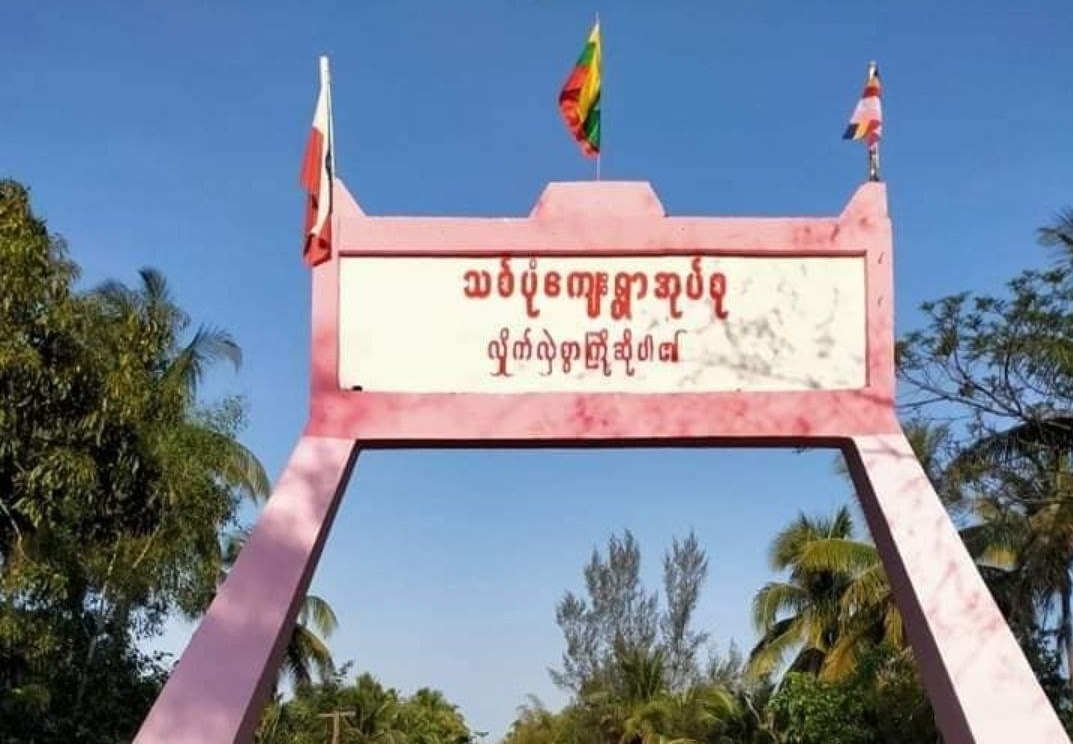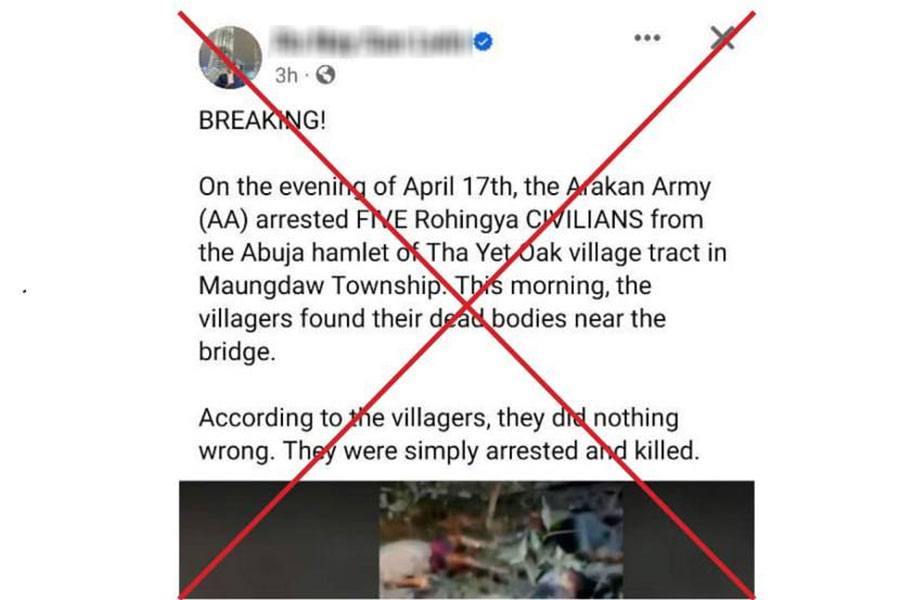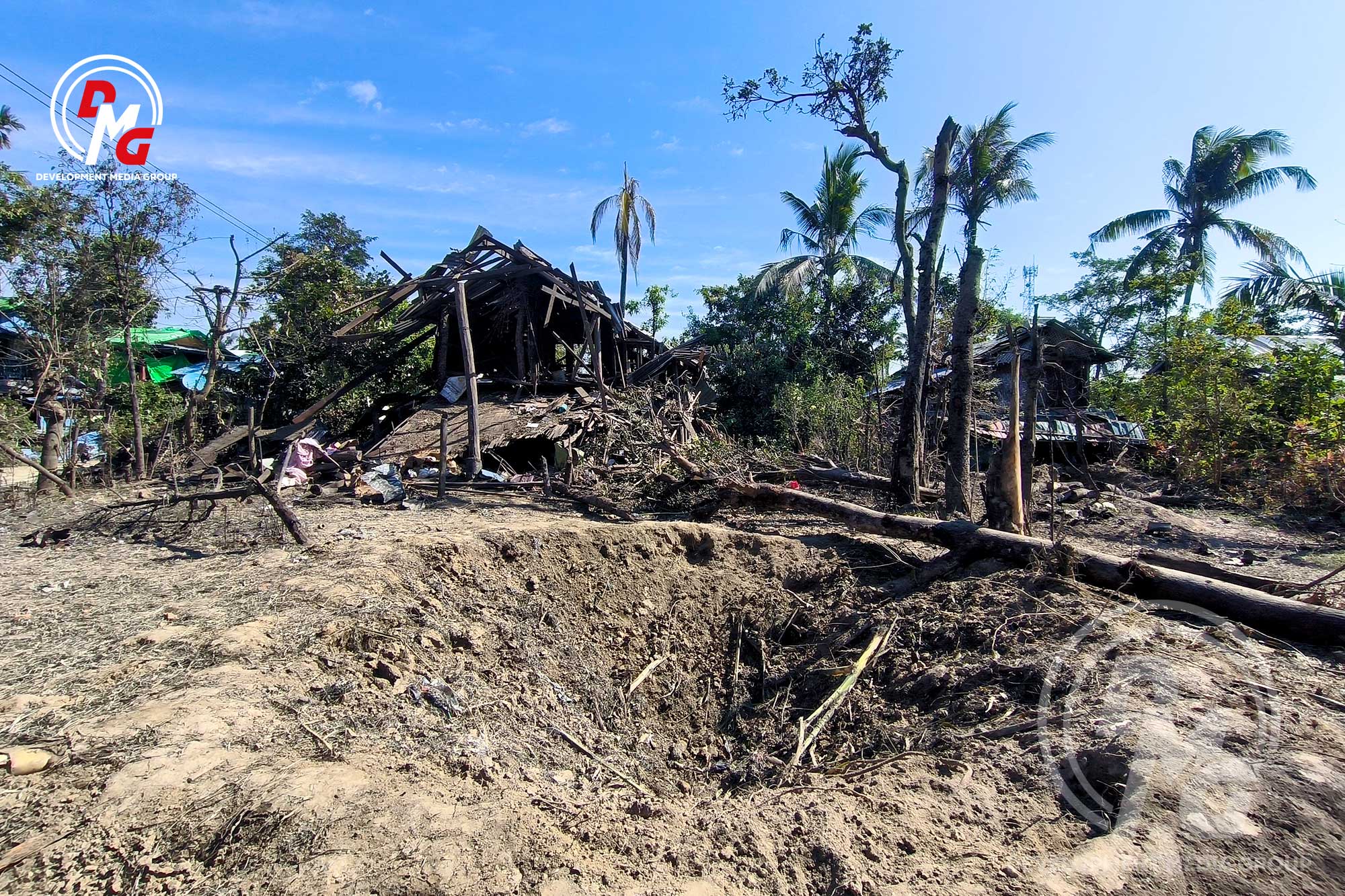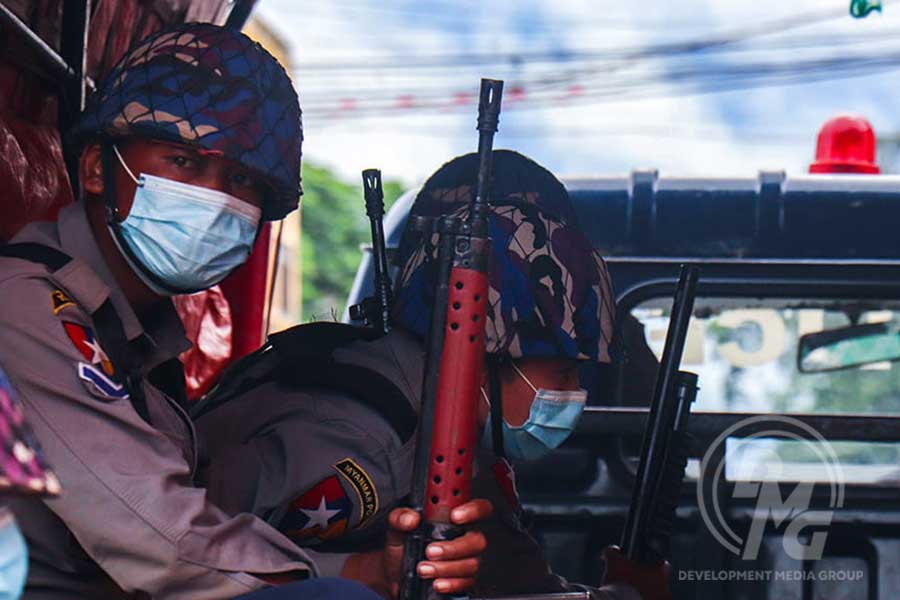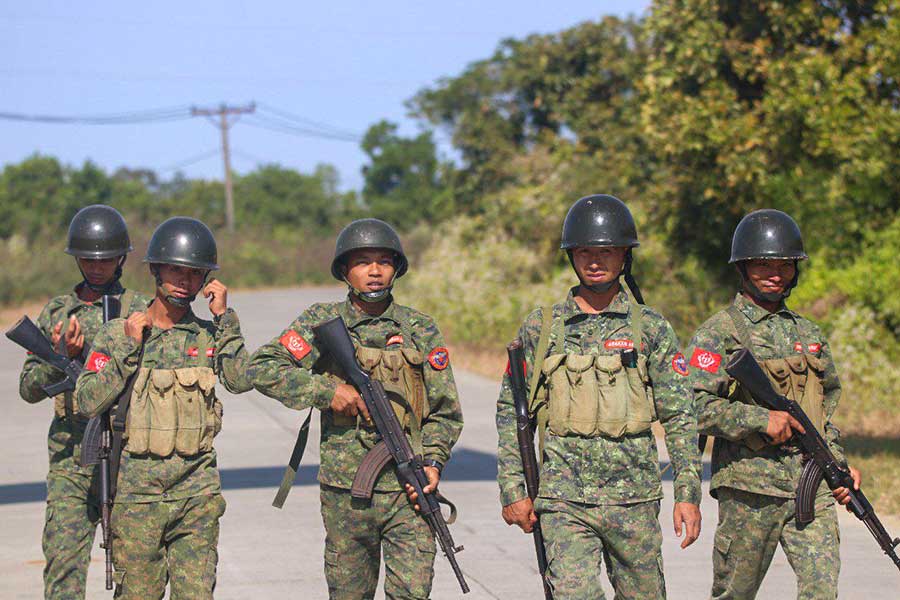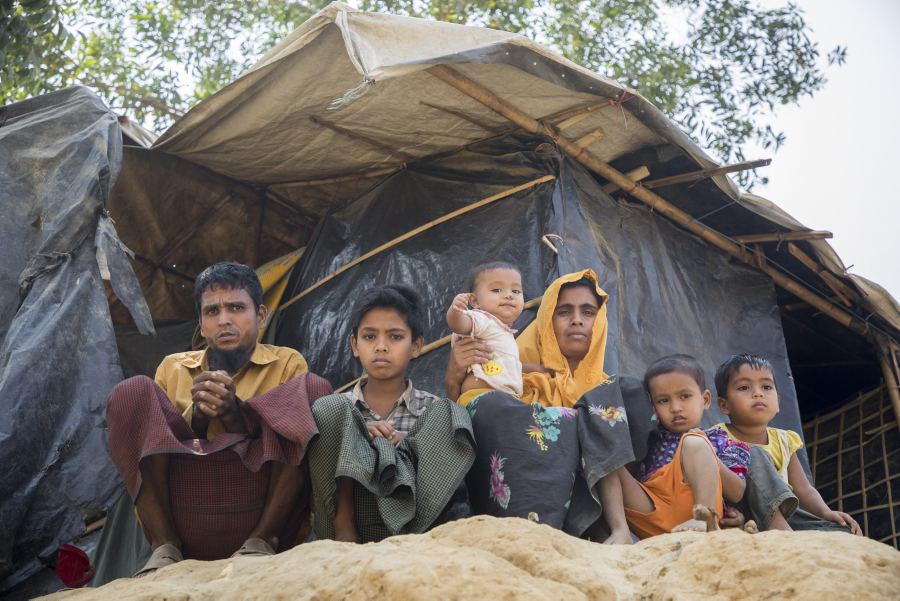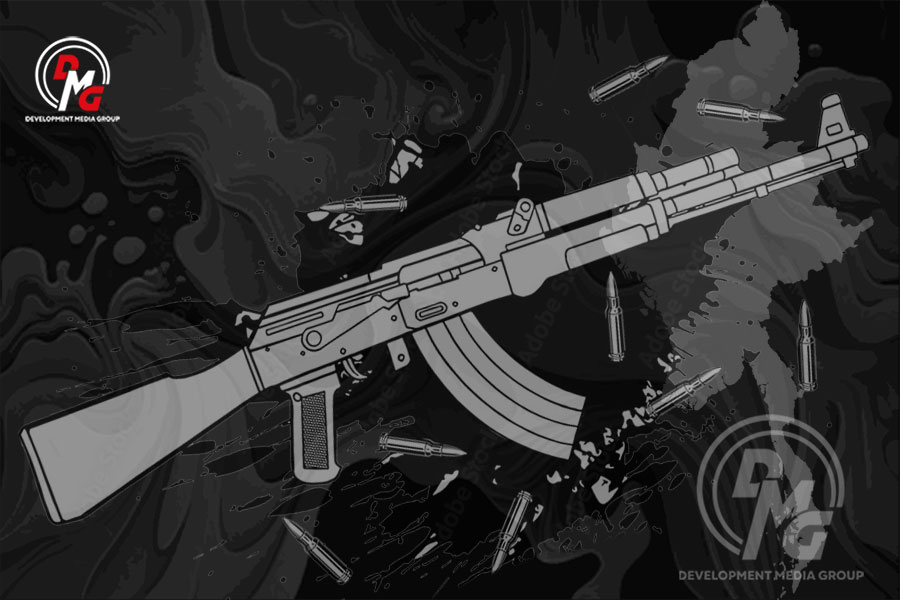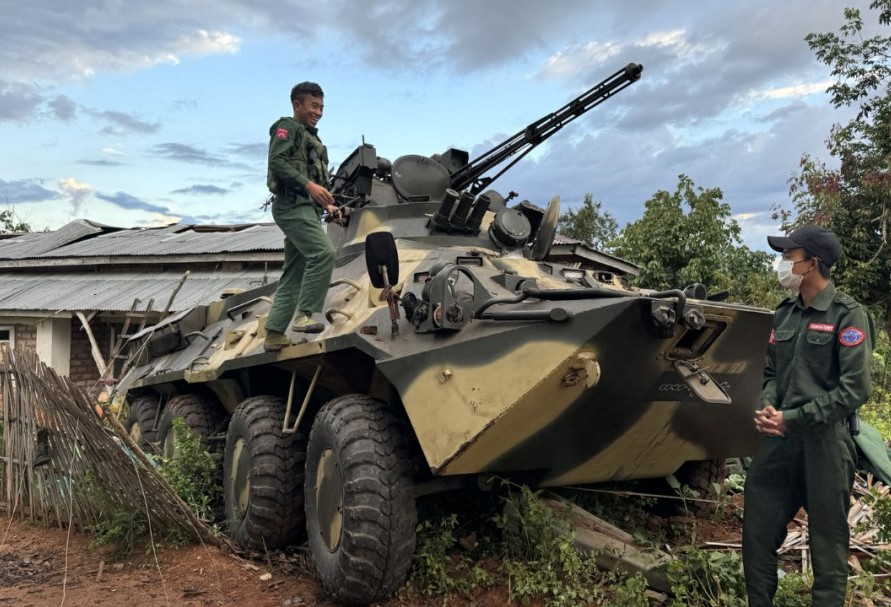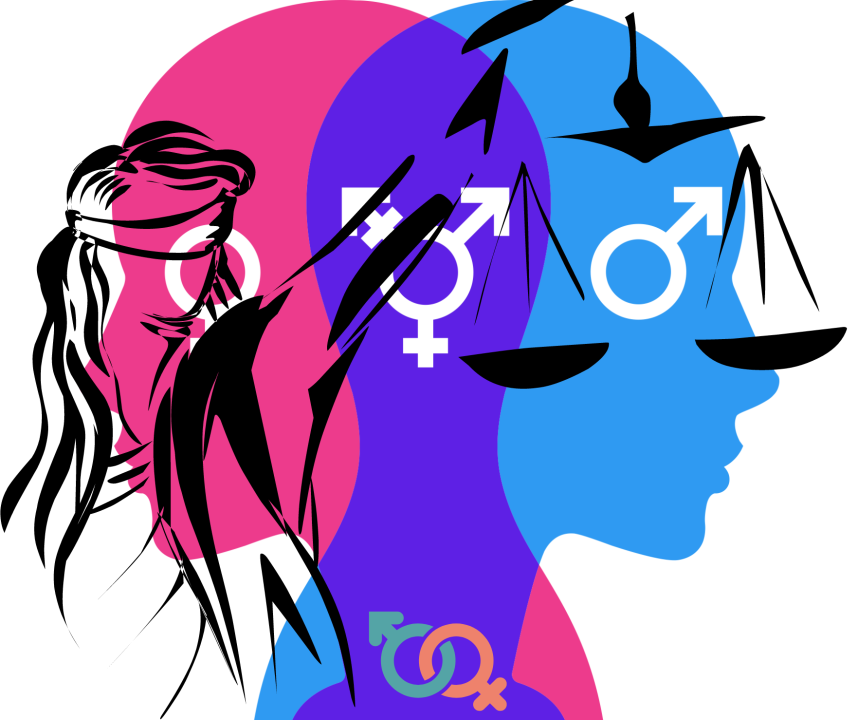- Junta conscripts 500 Muslims in Sittwe
- Thousands of houses torched, bulldozed by junta in Buthidaung
- Driver killed, two injured as junta soldiers open fire on bus in Thandwe Twsp
- Regime shelling kills two civilians, injures another in two Arakan State townships
- Septuagenarian loses leg in landmine explosion in Kyaukphyu Twsp
Non-certified masks on sale in Sittwe market
Masks not approved for use by the Food and Drug Administration (FDA) are being sold openly in the central market of the Arakan State capital Sittwe, DMG has learned.
07 May 2020
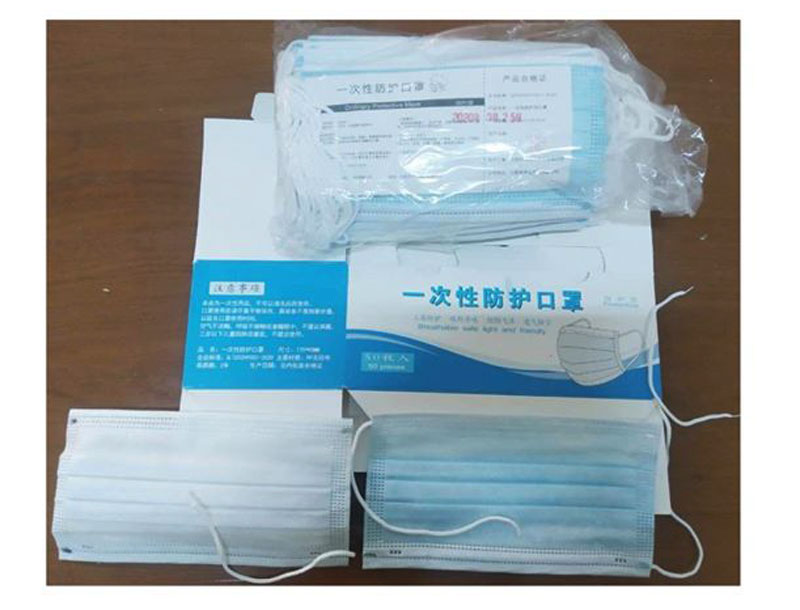
Myo Thiri Kyaw | DMG
May 7, Sittwe
Masks not approved for use by the Food and Drug Administration (FDA) are being sold openly in the central market of the Arakan State capital Sittwe, DMG has learned.
In an announcement on April 30, the FDA said the masks, which were in a container marked with Chinese characters, were found to be re-glued together in places and the straps of some were detached. There was no label on the container indicating the name of the manufacturing company, the country of origin or the product brand. The masks, the FDA said, should not be used.
They have been seen being sold in Sittwe’s central market for between K400 (US$0.28) and K600 per piece.
Dr. Naing Naing Lin, assistant director of the Food and Drug Administration of Arakan State, said it is not advisable to use these non-approved masks.
“In line with the FDA’s findings, since the quality of the masks cannot be guaranteed, the protection against the virus is weak. We are reducing the import of these kinds of Chinese-style masks with Chinese characters. It’s better not to use these masks,” he said.
When buying masks people should only use masks that show completely the product type and name, company name, country of origin and date of manufacture, Dr. Naing Naing Linn advised.
While usage and sales of masks to protect against COVID-19 have increased in Myanmar, internet bans in several Arakan State townships mean that people are not able to know whether or not something is FDA-approved, according to one resident of Rathedaung Township.
“We’ve been using the masks without knowing whether or not they are legal. Now that I do know, I will absolutely avoid using them. What if there are germs in the masks?” he asked.
Although some people in Arakan State are using masks to protect against COVID-19, impoverished families as well as displaced people are less likely to be able to adequately protect themselves.

